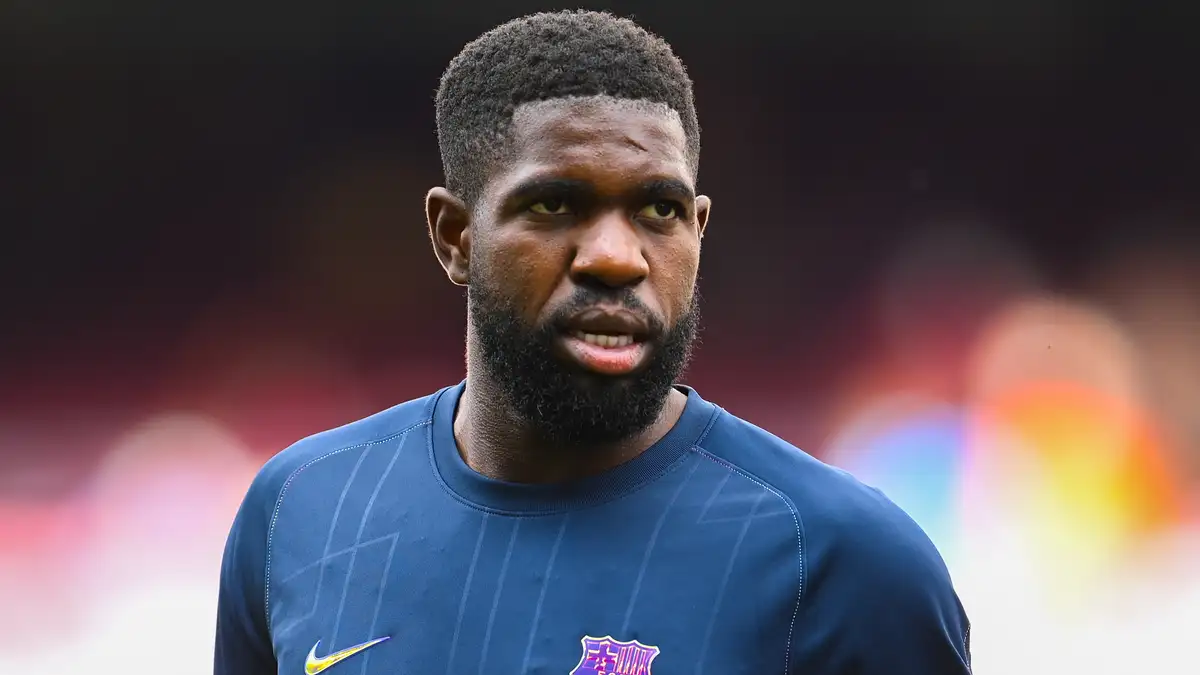
‘They Blamed Me for Everything’ – Samuel Umtiti Reveals ‘Rift’ with Barcelona as Retired Defender Opens Up on ‘Bouts of Depression’ During Long Injury Spells
‘They Blamed Me for Everything’ – Samuel Umtiti Details ‘Rift’ with Barcelona and ‘Bouts of Depression’ in Candid Reflection on Career
In football, so many careers burn brightly and fade quietly. But Samuel Umtiti’s story feels different—more painful, more complicated, and more human. Once one of the best defenders in Europe, a World Cup champion and a rock for both Barcelona and France, Umtiti’s career collapsed not through a lack of talent or desire, but through the slow torture of injuries, misunderstood diagnoses, and the crushing weight of expectation at one of the biggest clubs on the planet.
This week, in one of the most brutally honest interviews he has ever given, the 31-year-old lifted the curtain on what really happened in his final years at Barcelona: the behind-the-scenes disagreements over treatment, the emotional toll of chronic pain, the feeling of isolation, and the “rift” that opened between him and the club he once believed would be his long-term football home.
Now retired and working as a pundit, Umtiti has decided to speak openly—not for sympathy, he says, but because the truth has been twisted for too long.
Umtiti’s Career Ended This Summer—But the Real End Came Long Before
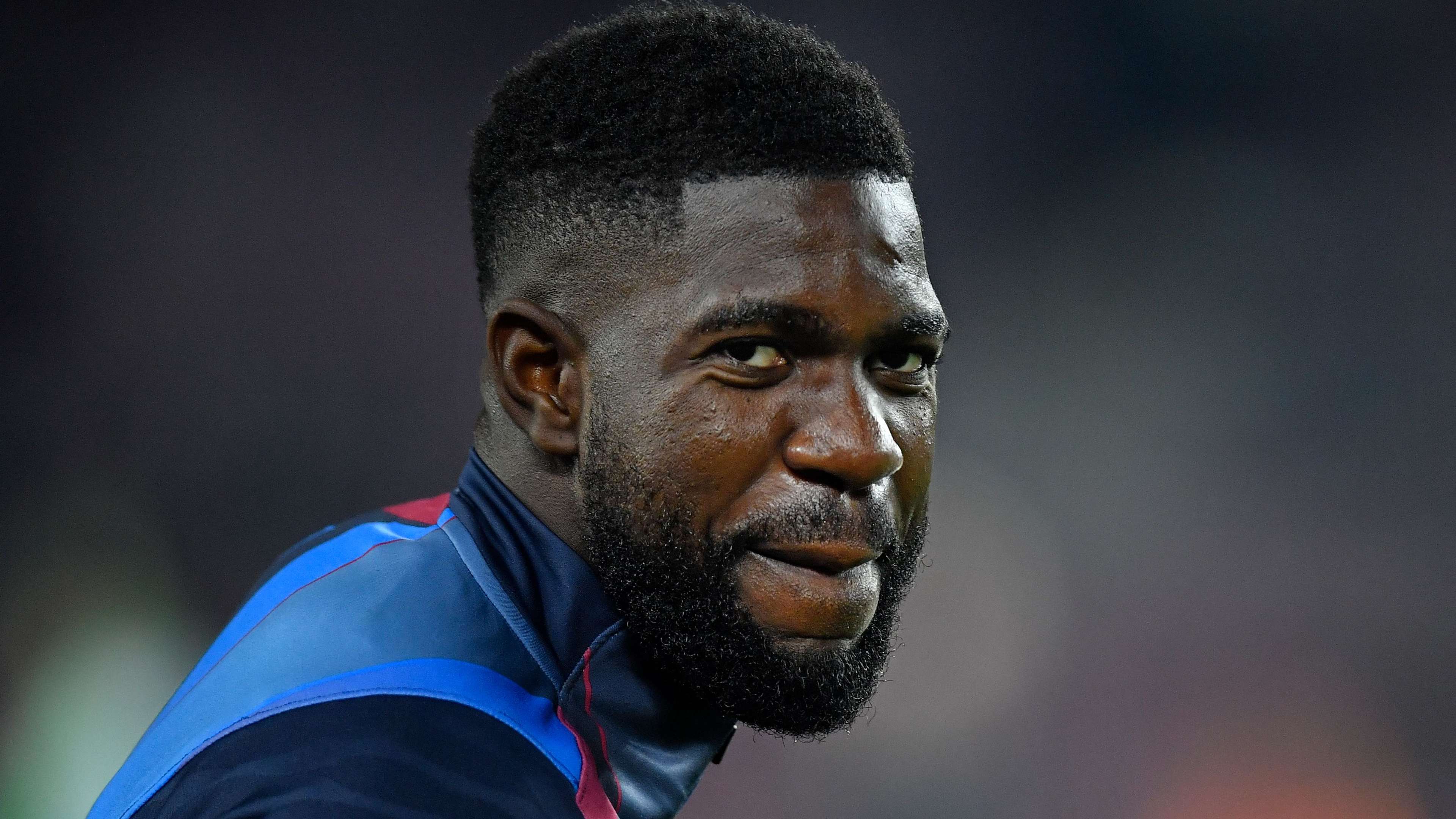
FBL-ESP-LIGA-BARCELONA-ECLHE
To fully understand his frustration, you have to remember where he started. Umtiti was a Lyon academy graduate, one of the club’s most gifted defensive products in a generation. By the time he left in 2016, he had already established himself as one of Ligue 1’s most reliable and technically polished centre-backs.
Barcelona came calling, and Umtiti thrived immediately. Under Luis Enrique, he became a starter almost overnight, slotting in beside Gerard Piqué like he had always belonged there. His first two seasons were nearly flawless: La Liga titles, dominant Champions League performances, and the reputation of a defender who combined intelligence with physicality in a way only the great ones do.
And then, of course, came 2018.
His performances for France at the World Cup were exceptional—tackles, leadership, a moment of destiny in the semi-final against Belgium. He was only 24 years old and already standing on top of the world. The future seemed limitless.
But while the world celebrated, his knee was beginning the slow decline that would ultimately end his career.
The Beginning of the ‘Rift’ with Barcelona
What came next was not just a series of injuries but a series of disagreements. As Umtiti explained, he wanted time after the World Cup to assess his physical condition properly, to consult multiple specialists, and to make decisions about his treatment based on a full understanding of the problem.
Barcelona didn’t necessarily agree.
“After the World Cup, I wanted to take some time to find out exactly what I had,” he told RMC. “We weren’t necessarily in agreement with the club, so I decided to look elsewhere, to see specialists.”
Most specialists, he said, told him he did not need surgery—something Barcelona had been pushing toward. The defender insisted he wasn’t trying to disobey the club; he simply believed he was making the best decision for his body.
Barcelona eventually respected his choice—but something had changed.
“I think the rift was created from that moment,” he said. “People started talking, saying things that weren’t necessarily true, putting all the blame on me.”
That blame, he added, came from both inside and outside the club. Critics accused him of refusing surgery for selfish reasons. Reports suggested he prioritized the World Cup over Barcelona’s needs. Rumours circulated that he wasn’t committed.
The reality, as Umtiti now makes clear, was far more painful.
Injury Hell and the Mental Collapse: “I Was Very, Very Affected”
Umtiti’s injuries were not just physical—they became emotional and psychological battles he struggled to speak about at the time.
“Looking back, I know that mentally I was very, very, very affected by it,” he admitted. “Perhaps bouts of depression.”
As his knee worsened and the criticism grew louder, Umtiti retreated from public life.
“I didn’t even leave my house. People didn’t know all of this. They thought: ‘If he doesn’t show anything on social media, he’s not doing anything.’ But I worked so hard—two or three sessions a day. I didn’t see my friends. I didn’t have a life.”
His frustration grew when he read media reports accusing him of laziness or suggesting he was content collecting a salary without contributing.
“I thought: ‘How can they think that about me? I’m not like that. Money isn’t what motivates me.’ I just wanted to play football.”
He insists he tried to follow the club’s instructions early on, but his body simply didn’t respond.
“My knee was always swollen. What they proposed didn’t work for me.”
Eventually, he took matters into his own hands—not recklessly, but thoughtfully. He overhauled his diet, eliminated meat and fish, immersed himself in medical research, and committed to a rehabilitation path he felt gave him a chance.
And yet the damage—physically and relationally—had already been done.
Resentment, Acceptance, and Moving On
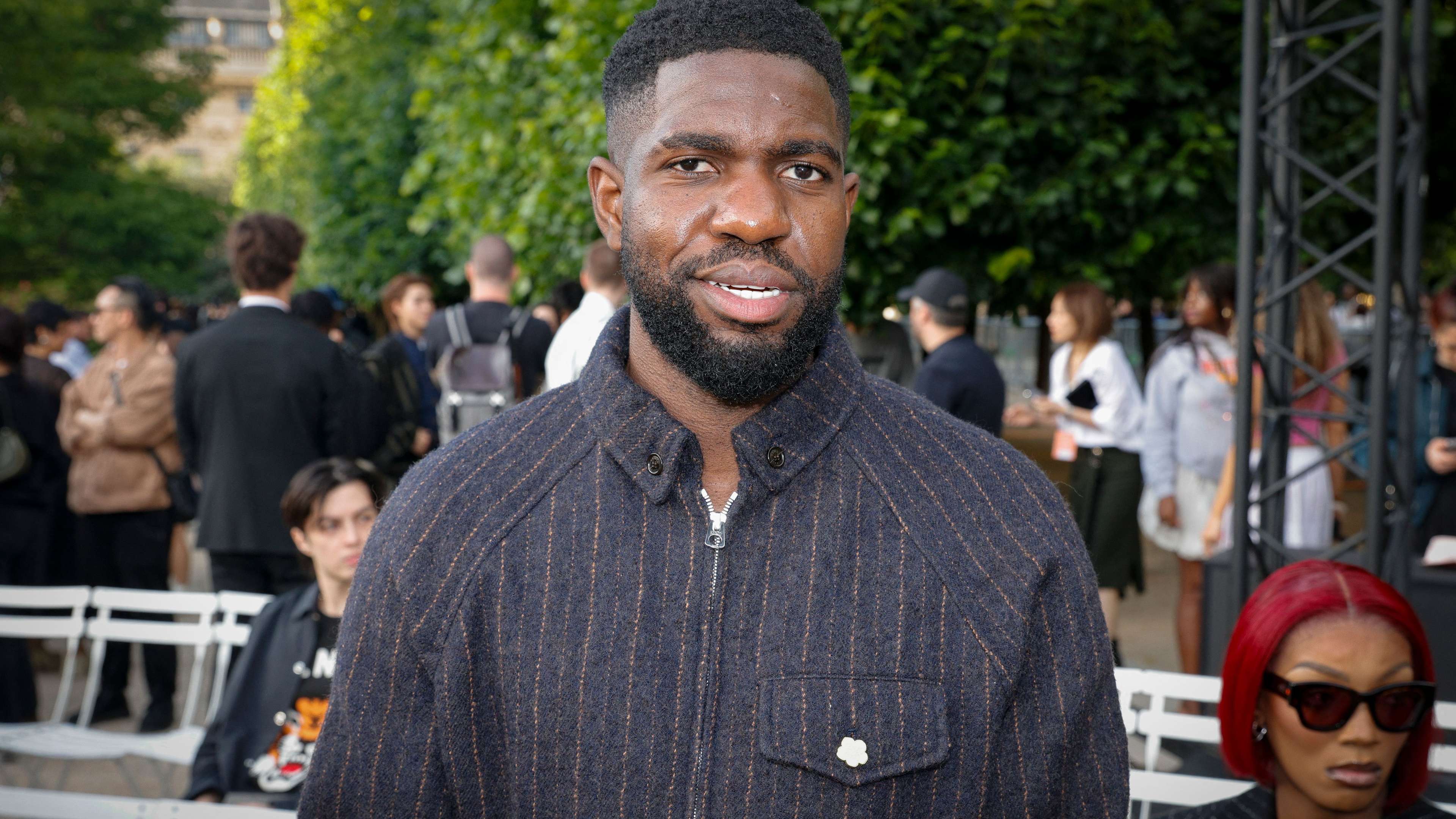
FASHION-FRANCE-MEN-KENZO
Perhaps one of the most telling lines from his interview was this:
“Some people didn’t necessarily do what they should have done… when you’re a professional, you can’t be that incompetent.”
It was a rare moment of sharp criticism from a player who has generally kept quiet. But he quickly followed it with something softer, more mature:
“I had a lot of resentment before, but I’ve done a lot of work and I don’t hold a grudge against anyone. I’m at peace with all of that.”
That peace, he says, finally allowed him to retire. Joining Lille gave him a final chance to feel like a footballer, even if only briefly. When his knee refused to cooperate again this year, he knew he couldn’t continue.
What Comes Next for Samuel Umtiti?
Although he has stepped away from playing, Umtiti hasn’t stepped away from football. Working as a pundit keeps him close to the game he still loves, but his long-term goal is much bigger.
“I’m so passionate,” he told OLDTV. “I watch every match. I’m going to get my diplomas in the next few weeks. Being a coach is the ultimate goal.”
He says he wants to build a coaching philosophy based on the mixture of styles and personalities he encountered throughout his career—from Lyon to Barcelona to the French national team.
His journey has been painful, but it has also given him perspective. And perhaps, as a future coach, that empathy will become his greatest strength.

















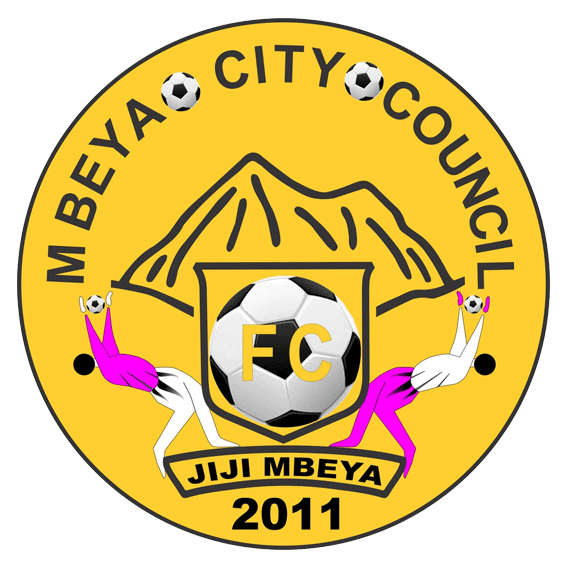

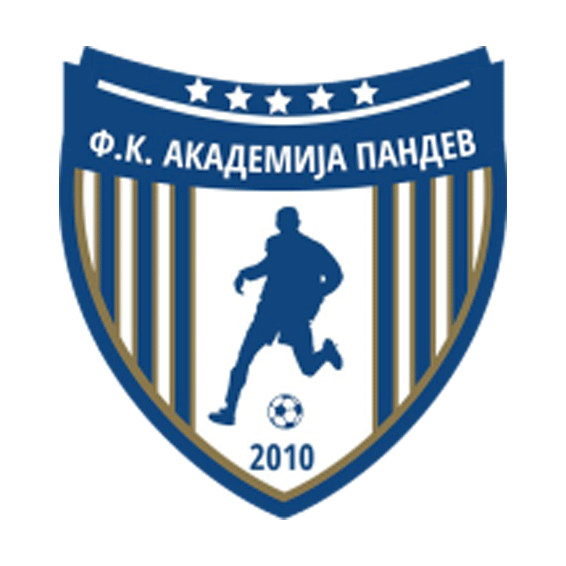


























There are no comments yet. Be the first to comment!